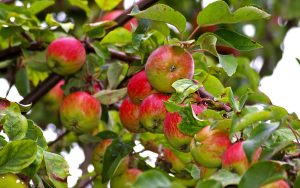
Sometimes, when trying to understand a concept, I have fun playing around with word definitions to get a glimmer of insight through their multiple meanings. Language is like a treasure chest that contains gems, that reveals coins of ancient and modern currencies.
And so I set out to explore the meaning of the word to “yield,” because I was intrigued by the interplay between God’s will and our human free will. Clearly, I am still responsible for my choices and actions. And even Jesus struggled in the Garden of Gethsemane with his submission of free will to God’s better plan. “Not my will, but thy will be done.” What does it mean to freely make the choice to yield my will to God’s will?
I’d somehow gotten the idea that if I wanted something, God would deliberately withhold it just to show me who was in charge. My own desire itself was suspect if it served no altruistic ideal. Was it right to make decisions that took into account my own benefit? Had I loved someone too much, or too little, that God made the decision to allow the pain of their dying? There are many situations over which I have no control, and little choice. So I wrestled with the concept of surrender in what I did have, of yielding my thoughts and ways and plans to God. It seemed to imply risk, and mean a frightening vulnerability.
The concept of a Yield sign flickered to mind. A Yield sign allows traffic to merge safely. Perhaps God doesn’t want to stamp out all desires, or reduce human beings to a fatalistic view of life. I just need, when I come to an intersection, to let Him go first. If I try to run on ahead of God, I have no way to know what trials, traps or difficulties lie in my path. But if I let God take the lead, he prepares my life ahead of me, making provision for sustenance and for safety, productive work, and yes, even joy. I can yield right of way when I know God is a loving shepherd.
In another sense, yielding may require sacrifice of something or someone very valuable. We look at what we have to give up and mourn it, forgetting that it’s important to release a thing so that we can allow for something better to come into our life. Or theirs.
We are reluctant to surrender one stage of our life because we fear the challenges of the next. As we hesitate, our old world crumbles around us. My parents, like many seniors, found it difficult to let go of their home, though it was becoming increasingly evident that the farm was no longer a safe place for them to be alone. One support worker, veteran witness to many families in this quandary, wisely advised them that the earlier you make decisions, the more options you have. As time goes on, choices will be more and more limited. It is hard to give up your old pots and pans, much of your comfortable furniture and loved possessions, the old familiar neighbourhood. I am sure it will be a struggle for me in my time. But to get stuck in the mourning of losses means not realizing potential for growth in a new setting.
And finally, we use the word yield to refer to a tree’s bounty of fruit in season. If we submit, yield to the process of regeneration, it creates the possibility of being a blessing to the world around us. The branch must yield its separate existence to be attached to the vine, as Jesus pointed out, or there would be no life, and thus no harvest. We are dependent for nourishment on the conduit Jesus opened for us.
So I look up word definitions and origins, because words are full of parables. The treasure of language includes keys to crack codes of deep truths. There is an underlying unity in all things, so the vocabulary that references the physical world illuminates something of the vast spiritual world.
“And his will is our peace; this is the sea
To which is moving onward whatsoever
It doth create, and all that nature makes.”
Dante’s Paradiso, Canto III, lines 85-87
